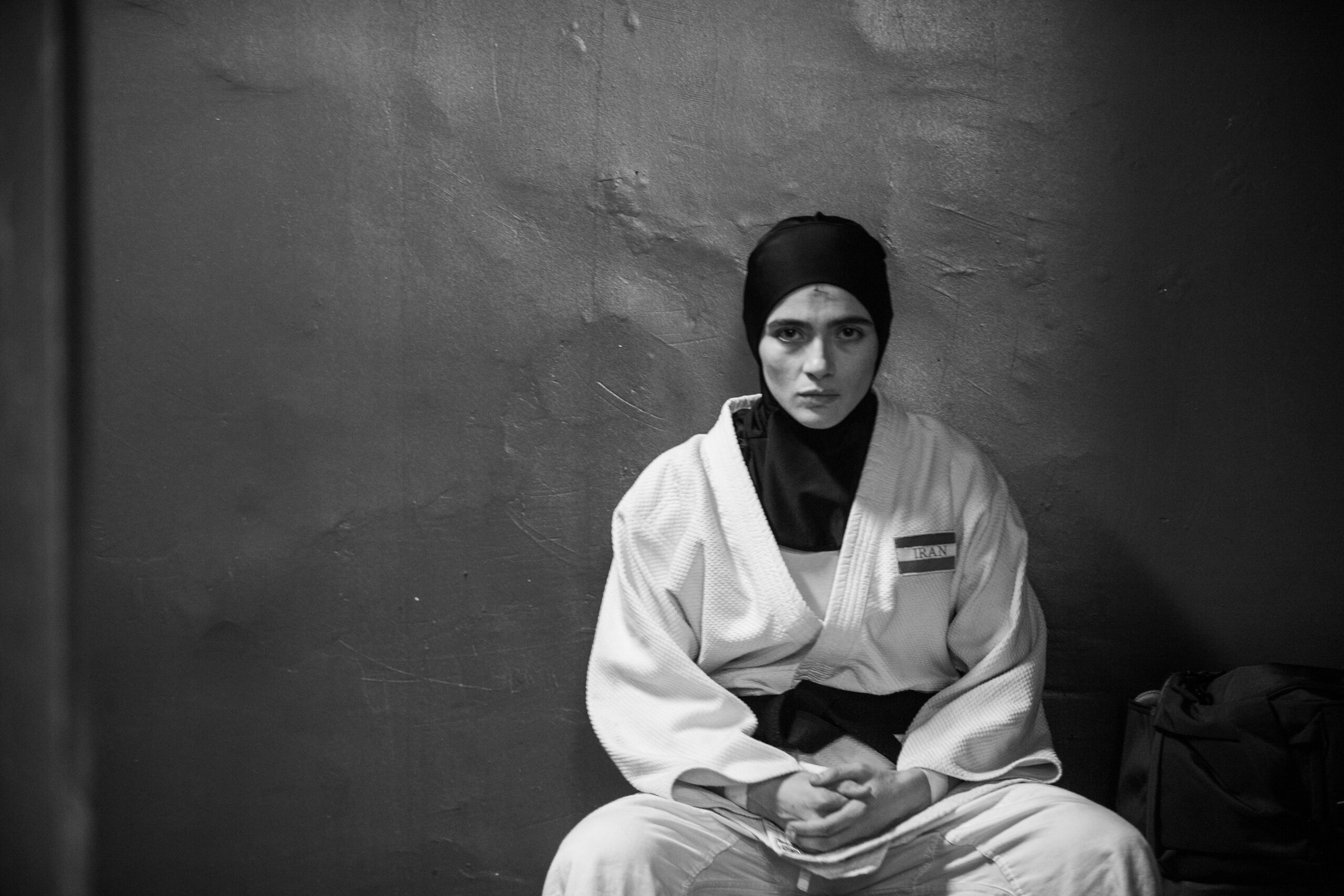Directors: Zar Amir Ebrahimi, Guy Nattiv
Writers: Elham Erfani, Guy Nattiv
Stars: Arienne Mandi, Zar Amir Ebrahimi, Jaime Ray Newman
Synopsis: The Iranian female judoka Leila is at the World Judo Championships, intent on bringing home Iran’s first gold medal.
International sports competitions have been meant, not only for showcasing the talents of individuals or teams, but as a friendly competition between nations. Unfortunately, many of these competitions have brought out the worst in nationalistic agendas from cheating to penalizing athletes should they not perform as the state expects. It’s especially true of Iran, which places its citizens under strict and unyielding codes of conduct within and without the country.

That is what makes Tatami unique. While other sports film conflicts are about individual pride, status, or greed; this film is about national interest. Leila’s (Arienne Mandi) leaders aren’t worried she will lose in the grander scheme of the competition, but that she could potentially lose to an Israeli. The escalation of tensions at home brings tension to the fights on the tatami, which is a Japanese straw mat covering the fighting surface. It makes for a daring story by screenwriters Elham Erfani and Guy Nattiv. They take us from the adrenaline of sports to the adrenaline of political intrigue without missing any emotional beats from either. We want Leila to win and we want her to escape oppression.
Tension like this is hard to sustain, but cinematographer Todd Martin, as directed by Zar Amir Ebrahimi and Guy Nattiv, excels at it. Every bout that we see is filmed from a different angle at first. We see the combatants from above or from behind one woman or another. We’re made aware of how large the square of tatami and the arena it’s housed in are by the movement of the camera. Even as we are in close with the combatants as they grapple, it never feels off balance or confusing. It’s controlled until the last moment when the fight or flight response kicks in. The Steadicam jostles as the characters run. Each and every movement is precise and well executed. The fact that the film is shot in lush black and white is an added effect evoking the boxing noirs where a fighter is put in a precarious situation.
There are two matched scenes that create a perfect bookend for the film and highlight the best of Tatami‘s technical prowess. Directors Ebrahimi and Nattiv give us a visual language early on, showing us trust, concern, and duplicity in equal measure through the staging of their characters. The first of the scenes is on the team bus with women in the various seats, the camera pushes in, up the aisle and it turns to see Leila, boxed in by another woman. The camera then turns to see Maryam (Zar Amir Ebrahimi), looking over at Leila, but with no one next to her. The next time these two are on the same bus, they are next to each other and they look at one another. The journey to that moment is filled with anger, betrayal, fear, and doubt. Neither scene has dialogue, but the actresses are speaking volumes with their looks.

Zar Amir Ebrahimi has the tougher role in Tatami as a conflicted coach who has been in the same situation as her athlete. Ebrahimi pulls off this conflict with such grace. Her expressions and body language say far more than a script full of monologues could. The brilliance of her performance comes out of her character’s reaction. She plays Maryam as an intricately layered woman who is revealed in pieces and through conflict. Her ability to evoke something meaningful with a twitch of her lip or an opening of her eyes, is remarkable. Ebrahimi steals every scene she’s in and when she does get her big monologue at the end, it is devastating.
Tatami is a high wire act of political tension and sports drama. It’s a film that lets neither end of its story down. If you’re a fan of films that call out political oppression, this film is for you. If you’re a fan of great sports dramas, this film is for you. It’s a film that excites and inspires while never letting us forget the realities the fiction is based on and the price some pay to do what they love.





